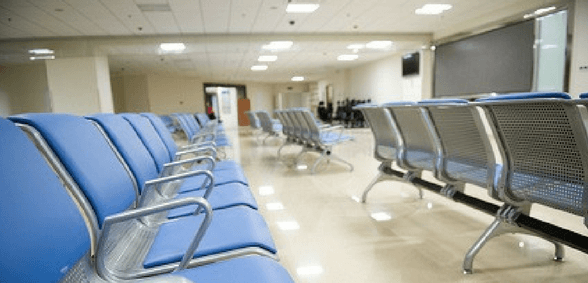
CREDIT: This story was first seen in the Express and Star
The Royal College of General Practitioners in Scotland said 10 minute consultations are “unfit for purpose in many cases”, the Express and Star reports.
Longer GP appointments and continuity of care could play a key role in the prevention and early detection of cancer, according to the organisation representing family doctors.
The Royal College of General Practitioners (RCGP) said 10 minute consultations are often “unfit for purpose”.
The RCGP was one of a number of organisations giving evidence to Holyrood’s Health Committee on the flagship Detect Cancer Early programme which targets Scotland’s most common cancers including bowel.
Figures published on Tuesday show the 60% bowel screening target has not been met again, with significantly lower uptake among the most deprived communities compared with the least deprived.
Euan Paterson, executive officer at the RCGP in Scotland, said GPs needed to spend more time with patients, particularly those from more deprived areas, to build trust in order to both encourage preventative behaviour and detect the early signs of cancer.
The former GP said: “Me suggesting, pushing, encouraging, coercing somebody to go some place – that might have been a screening appointment, it might have been an active referral – that sort of relationship at the start of all of this is hugely beneficial, and that takes time.”
He said a Scandanavian study had estimated “it would take about 10 or 11 consultations between the same two individuals in primary care for a trusting relationship to develop”.
“That’s a lot of time, but that’s maybe the sort of time that’s needed if we really want to see some transformation going on,” he said.
In its written submission to the committee, the RCGP said that standard 10 minute GP consultations are “unfit for purpose in many cases”.
“Of course, in order to be able to effectively diagnose cancer at the earliest stage, patients must be able to access their GP service and GPs must be able to spend appropriate time with their patients to diagnose and support them,” it stated.
“In terms of public health campaigns, more could be done to focus on minimising risk factors for cancer, rather than raising awareness of possible symptoms of the disease.”
It added: “To ensure that the Detect Cancer Early programme is effectively delivered on the ground, both primary and secondary care services must be adequately financed and staffed to ensure that once diagnosed those who require secondary care treatment are able to be referred and treated as quickly as possible.”
Don’t forget to follow us on Twitter, or connect with us on LinkedIn!

Be the first to comment